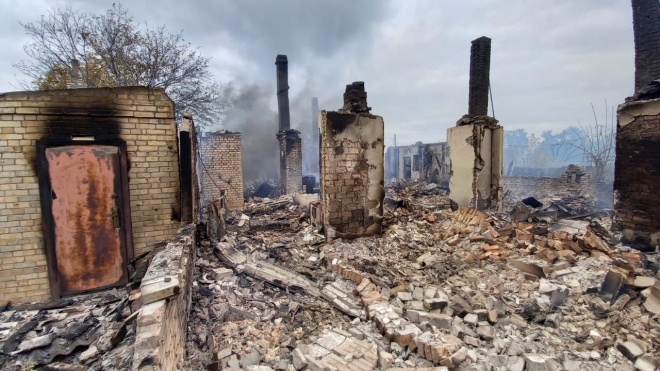War on the Rocks writes about the difficulties that Europe will face in the winter against the background of the Russian invasion of Ukraine. The war highlighted many of the challenges that already existed on the continent, from divisions among EU countries to dependence on Russian energy. The aggravation of these problems has only increased the need to find solutions, and this needs to be done quickly. Thus, the EU countries reviewed their military and defense potential, took measures to counteract the energy crisis. But Europeʼs key problem remains high energy prices ― and, according to experts, voters can blame it not on the war in Ukraine, but on national leaders. The article describes the situation in Britain, France, Germany and Italy in more detail. Since the countries of Eastern Europe used to be wary of dependence on Russia and warned of the dangers, now Poland and the Baltic countries feel more opportunities to push the "traditional" leaders of Europe ― France and Germany ― to support Ukraine more and faster, experts say. Also, the war removed the taboo on the issue of expanding defense capabilities, because now people began to understand that investing in defense is not always a bad thing. In general, the publication writes, Russiaʼs full-scale invasion of Ukraine only strengthened European and transatlantic unity. With this in mind, experts are confident that Europe will cope with the cold winter, and with wise leadership, the continent will welcome spring stronger and more united.
Daniel F. Runde, an expert at the Center for Strategic and International Studies, writes in Politico about their role in supporting Ukraine against the background of the upcoming meeting of the G7 countries in Berlin. The longer the war lasts, the more money is needed for the reconstruction and restoration of Ukraine ― and there is not enough money for it, writes Runde. In reality, the private sector will play a major role in reconstruction, the expert believes, but it will require support from the development financial institutions (DFIs) of the G7 countries and the EU. Runde believes that they should commit to providing Ukraine with at least $5 billion per year for the next five years. This amount will help attract private investment to meet Ukraineʼs short- and long-term needs, the essay says. DFIs are little-known institutions that can significantly help reconstruction, but for now, due to a number of limitations, they stand on the sidelines. The situation may change during the G7 summit in Berlin: they could agree on creating opportunities for DFIs to invest in Ukraine and develop a mechanism for such support. Runde emphasizes that the invasion of Russia threatens not only Ukraine, but also all the democracies of the world. The G7 is a key tool for coordinating the resources of the USA, Europe and other countries, and therefore it should take on the historical obligations of supporting Ukraine before itʼs too late, the author concludes.
NPR spoke with information warfare expert Nina Jankovicz about the differences in rhetoric between Zelensky and Putin. Here are the main points of the conversation:
- Volodymyr Zelenskyʼs evening speeches are reminiscent of Winston Churchillʼs or Franklin Delano Rooseveltʼs speeches. They not only relate to the main news about the war, but also unite the world public around Ukraine.
- Zelenskyʼs image is authentic and emotional, his theses are based on facts and evidence, and the data he voices can be compared with data from open sources, unlike Putinʼs.
- The image of Putin does not look natural, and the image of public support for the war seems artificial and staged.
- Over the past eight months, the world has seen a new approach to informing at the state level on the example of Ukraine, and it has gained success not only within the country, but also among the world audience.
